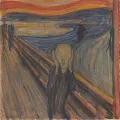Kazakhstan: criminal investigation into police torture of Jehovah's Witness at a standstill
Forum 18 (14.11.2025) - The criminal investigation into four police officers who tortured and threatened to murder Jehovah's Witness Daniyar Tursynbayev in the southern town of Kentau on 13 August appears to be at a standstill. An official of Kentau Prosecutor's Office – which a court had to order to begin an investigation – insists that it cannot proceed until Tursynbayev makes his statement about the torture in person in Kentau.




















